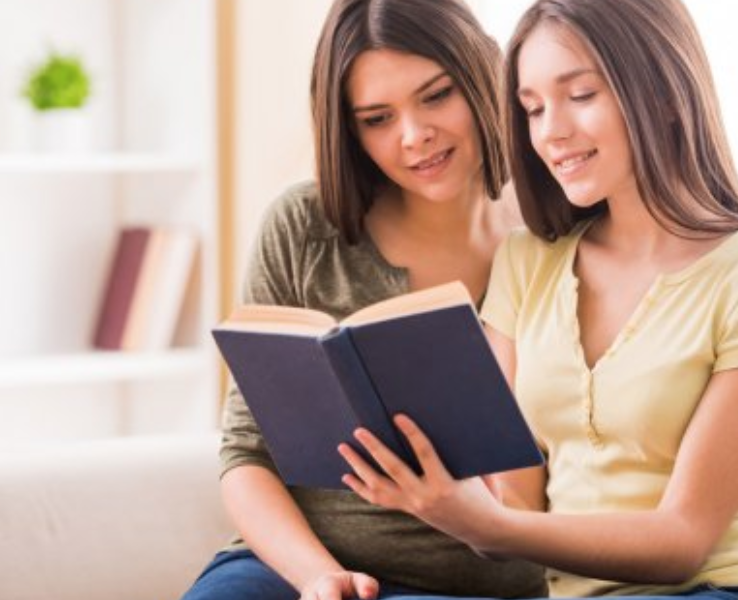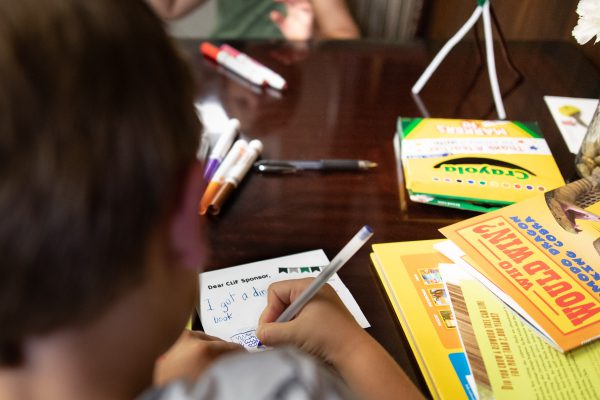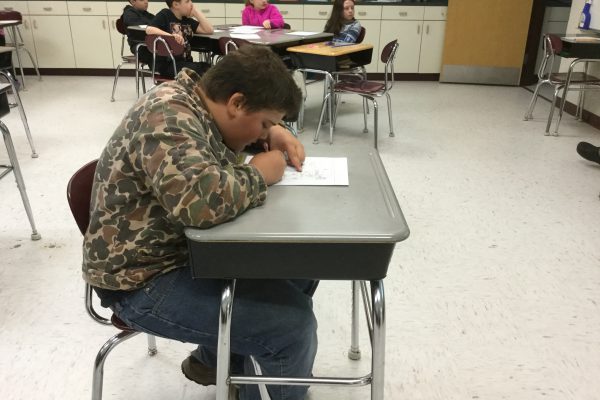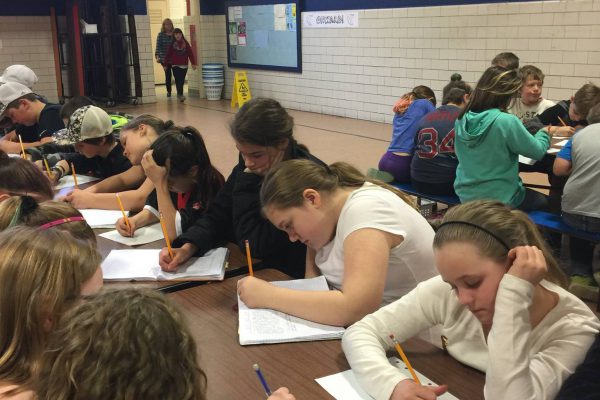
Of course, peer-to-peer relationships are important to a child’s social-emotional learning and development, but so, too, are relationships with adults. Multigenerational relationships can be fulfilling for everyone involved and it’s essential for kids to have positive, supportive adults in their lives to make them feel safe, loved, and seen. Adults have knowledge and experiences to share that can help children learn and grow in a variety of ways.
I’ve been fortunate over the years to mentor/work with a number of children and young adults, mostly on writing. Those relationships have been some of my more meaningful friendships over the last decade or so. Every week for a year, I met with H. (age 7) to practice reading and storytelling and make food together. Her humor and enthusiasm brought joy to my life, even through a difficult personal time when my mother was in the hospital. K. (age 16) asked me to mentor him on his senior project, an original play, after I taught him in a fiction workshop. We talked and brainstormed throughout the school year as he obsessed over his play. His mother told me that he always left our conversations energized and excited to work. Watching the play performed was so fun and gratifying to see his hard work impress his teachers and friends. His mother hugged me and gave me tulips and a Starbucks gift card to thank me for the difference I’d made in his life. I was almost brought to tears. Z. (17) came into my life when a friend who worked at Central Vermont Adult Basic Education told me he had a student who needed a positive and supportive role model in their life and was writing a novel for their English requirements for their high school diploma. For two years, we met every week for coffee and, more often than not, discussing the writing was sidelined in favor of discussing their life and identity and frustrations and dreams. I was so proud when they texted me earlier this year to say they’d graduated! And I cherish the Christmas card they sent me, saying how much I’d helped them grow. Now I’m thrilled that they’re in community college and continuing their creative work. HD (12) asked me to mentor them in writing after I selected their poem as the winner of CLiF’s Poetry Contest and gave them positive feedback about their work. She’s working on self-publishing a book with her mom and I love when she sends me poems and asks what I think. And there’s a new one: A former high school teacher of mine asked me to be the advisor for a senior’s independent study project, which is putting together a literary magazine. We met recently and I’m very excited to work with her and see what she puts together (and to see the reprise of a literary magazine at my old high school; I edited the one we used to put together back in the day).
And then there’s the college students and recent graduates I work with as a Developmental Editor at New Degree Press/Creator Institute, where I coach (mostly) young writers in writing their books. Some of them have never shared their writing before and start out nervous, but, I hope they feel inspired by our weekly conversations (and many tell me they do). Yesterday, a meeting with one student in which I thought we were going to discuss poems took a very different turn. When KG came on the call, she was already in tears. I said, OK, let’s put away the writing and just talk. She was having a hard time with her parents understanding her writing about depression and suicidal ideation. For better or worse, I’ve dealt and am continuing to deal with my own parents grappling with me writing about my bipolar disorder, manic episodes, family alcohol addiction, and other sensitive topics. KG and I talked through it, and, though I encouraged her to see a mental health professional, I was glad to hear that I’d helped her and I opened the door to a different level of our relationship.
All of these relationships have been as meaningful to me as I hope they are to the young people I’ve had the privilege of working with. Having role models/mentors to look up to in your life and guide you in your passions is, in my opinion, essential to growth. I was lucky enough to have those people in my life and want to pass it on. While I hope their writing improves and is fostered through us working together, it’s the other conversations that I think really have the power to change and encourage them. I hope I’ve made some small impact on these young people, as they surely have hadon me.




Thanks for sharing that. So inspiring. Good luck in all your continued mentoring. Such an important thing to do.